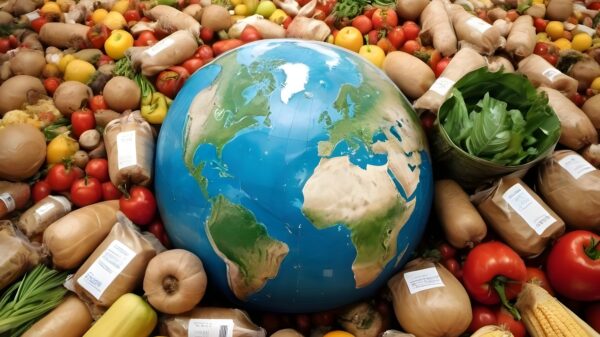Towards Zero Waste: Combating Global Food Wastage for a Sustainable Tomorrow
Ultimately, addressing the epidemic of food wastage requires a fundamental shift in our approach to food production, distribution, and consumption. It demands a more holistic and sustainable approach that prioritizes efficiency, equity, and environmental stewardship. The choices we make today will determine the future of our food system and the well-being of future generations.

Global Food Waste: Representative Image
Reported & Written By Dr. Sunny Dhiman, Diary Times, Shimla, April 28: In a world where millions suffer from hunger and malnutrition, the sheer scale of food wastage is nothing short of a moral outrage. Every year, billions of tonnes of food are needlessly discarded, squandering precious resources and exacerbating environmental degradation. This epidemic of waste is not just a symptom of a broken food system; it’s a reflection of our society’s skewed priorities and unsustainable practices.
The statistics are staggering. According to the Food and Agriculture Organization (FAO) of the United Nations, approximately one-third of all food produced for human consumption is lost or wasted annually. In developed countries, much of this waste occurs at the consumer level, as households toss out perfectly edible food due to overbuying, arbitrary expiration dates, or simply neglect. Meanwhile, in developing nations, food losses often occur earlier in the supply chain due to poor infrastructure, inadequate storage facilities, and lack of access to markets.
The consequences of food wastage are far-reaching and multifaceted. At its most immediate level, it perpetuates hunger and exacerbates food insecurity, depriving millions of people of their basic right to nourishment. In a world where hunger coexists with plenty, this is an unconscionable injustice that demands urgent redress.
Get The Latest News Of Himachal First On Mobile, Click Here To Join Our WhatsApp Group
But the impact of food wastage extends beyond its human toll. Environmentally, the resources squandered in the production, processing, and transportation of food – including water, energy, and land – exact a heavy toll on our planet. The carbon footprint of wasted food is substantial, contributing to climate change and environmental degradation. Moreover, the disposal of organic waste in landfills produces methane, a potent greenhouse gas that further accelerates global warming.
Economically, food wastage represents a colossal waste of resources and potential. Businesses incur significant financial losses due to spoilage and inefficiencies throughout the supply chain. These losses have ripple effects across the economy, impacting farmers, distributors, retailers, and consumers alike. In a world where resources are finite and inequality persists, this represents a profound misallocation of resources that could be used to address poverty, inequality, and food insecurity.
We’re now on WhatsApp –Click to join
But there’s hope on the horizon. Addressing the epidemic of food wastage requires a concerted effort on multiple fronts. With concerted efforts and innovative solutions, we can combat global food wastage and pave the way for a sustainable tomorrow. It begins with raising awareness and fostering a culture of responsible consumption, where individuals and households are mindful of their food choices and strive to minimize waste. This entails planning meals thoughtfully, buying only what is needed, and using leftovers creatively. It also involves rethinking our attitudes towards imperfect or “ugly” produce, recognizing that appearance does not diminish nutritional value.
But individual actions alone are not enough. Governments, businesses, and civil society must also play a crucial role in tackling food wastage. This includes investing in infrastructure and technologies to improve storage, transportation, and distribution systems, particularly in developing countries where food losses are most acute. It also involves implementing policies and regulations to incentivize food recovery, redistribution, and composting, while discouraging wasteful practices such as overproduction and overconsumption.
Ultimately, addressing the epidemic of food wastage requires a fundamental shift in our approach to food production, distribution, and consumption. It demands a more holistic and sustainable approach that prioritizes efficiency, equity, and environmental stewardship. The choices we make today will determine the future of our food system and the well-being of future generations. It’s time to confront the hidden cost of plenty and build a more just, resilient, and sustainable food system for all.
Also Read | Sukhu Government Fails to Pay Himachal Pradesh Jan Aushadhi Centres on Time
Be Part of Quality Journalism
| Quality journalism takes a lot of time, money and hard work to produce and despite all the hardships we still do it. Our reporters and editors are working overtime in Himachal and beyond to cover what you care about, break big stories, and expose injustices that can change lives. Today more people are reading Diary Times than ever, but only a handful are paying while advertising revenues are falling fast. |

Associate Professor, Department of Biotechnology, Chandigarh University, India.






